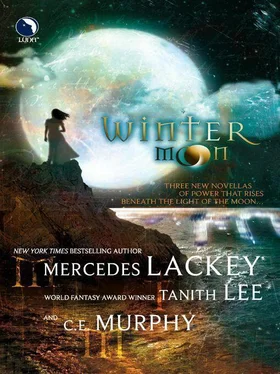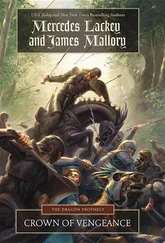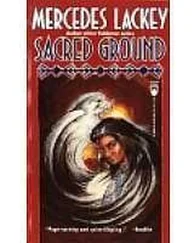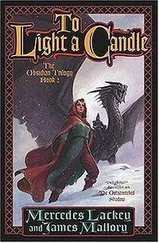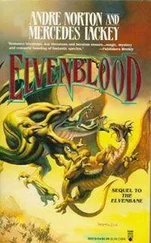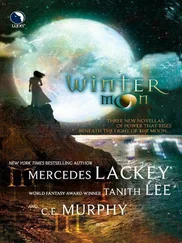Nowhere did she detect any evidence of their passing, either freely or as captives.
Little streams went through the forest, often falling down over tall rocks into some pool below.
By such a pool she decided to make her camp that night, and arranged it in the sunset hour.
Clirando took from her pack a handful of oat flour and mixed it with water and raisins, putting the cake to bake in the fire. She sat with her back to the rock, the waterfall splashing softly to her left.
Long shadows gathered as the peachy glimpses of the sky cooled.
Well. There was no fear she would sleep again tonight. Clirando had considered what had happened on the beach. Since she only slept now if drugged, then she had been, and her band with her. They had talked quite a while over the food, so probably that was not at fault. Very likely the wine they had brought was the culprit. Clirando, who drank it the last, slept the last. She had left the skin today on the shore, because it was too cumbersome to carry. But who had done it? Who had put the sleeping draft into the wine, and why? Some new enemy?
Tonight was the First Night of Full Moon.
The old woman would be lighting her beacon, and all the other beacons would also beam out again along the coasts. And somewhere the island celebrated like the rest of the world—but where?
Here in these trees she would see the moon, threading through the boughs, clear at the center of the glade, and over there in that gap.
Clirando ate her oat bread and drank water from the pool. She tried not to think of pirates stealing up the beach to take her drugged girls for slaves. After all, there had been no marks of them anywhere inland. It seemed but too likely now they had been stolen away by ship. Why then did the robbers leave Clirando? Not tempting enough, perhaps, she thought ironically. Thestus had praised her looks, comparing her to a young lion. But Araitha was the beautiful one. And besides Clirando was “cold” and had no feminine talents—
In a sudden rage Clirando hurled the husk of her bread into the fire. A splash of flame rose there.
“I am not cold . I have passion. I showed you that, Thestus, but best I showed you when I beat you in the war-court.”
Her voice rang hard on the silence, as if it hit the darkening sky.
And in that moment, from out of the noiseless forest where not even the birds had sung a farewell to the sun, surged up a piercing, wailing, jeering cry.
Clirando was on her feet, weapons ready.
But after the jeer, silence.
The forest breathed as the sea did, leaves touched by faint night breezes. Not a bird or animal had reacted to the unnerving noise.
She had the rock behind her, the fire and the pool in front. A reasonable defensive position. She waited, tense as the sword in her hand.
Minutes went by, three or four, maybe longer.
Nothing stirred beyond the pool among the columns of the pines.
The cry—some night bird, perhaps, some animal hunting? No, she had never heard such a screech from any animal or bird, or been told of one. But then again, Moon Isle was—
Scalding her ears and brain, searing her heart and blood, the awful wail went up again. Now it had three voices.
Human—it was like the jeering of some insane and evil crowd.
She saw them trot, the three of them, from among the trees and the folding cloak of night. The pig monsters from the cliff top.
Clirando bent and drew from her fire a long branch ripe with flames. She held it aloft in her left hand.
Then purposely she walked by the fire, skirting the pool, taking measured steps.
They stood together in a looser formation than before. The beast in the middle lifted its lip, and out came the mocking cry, full blast.
She would move slowly, then sprint straight at them. Fire for the one most to the left, the sword through the neck of the middle one. Then around to take the third with whatever she had.
She was shaking inside herself, but also lit with fury.
What happened then seemed like the childish joke of some cruel god.
Something else, rushing like a whirlwind, bowled directly into Clirando, sending her headlong and sprawling. It leaped over her back as she went down—she felt it go, hot as fire.
Pushing herself up, the burning branch lost, the sword juggled back into her grip, she checked in astonishment.
What had knocked her down was the other animal she had met on the cliffs, the lion with the dappled pelt. Either that, or one exactly of the same species. It had jumped over her and gone plunging at the three pig things, just as she had planned to do. As she stood there gasping, she saw how it plummeted straight into all three, angling its leonine body as it did so, the large paws thrashing.
Squealing now, all three pigs jumbled away from it. They went galloping back among the trees, the cat in hot pursuit.
The last she saw of the incredible scene was the lion’s creamy tail lashing in darkness like a snake. Then everything was as it had been, and silent once more.
Clirando retrieved the burning branch from the ground and stamped out the scorches it had made. Uneasily, confused, she turned to retrace her way to her fire.
Something else was there.
The reflection of it, fire limned, went down into the pool.
Clirando straightened and raised her sword. Her green eyes were wide, and burning like the flames.
“That is my place. Come away from it.”
“But you left your place,” he said casually.
“Did you see why?”
“I saw something running off through the wood.”
Clirando said, “Move over there, away from my fire. I shan’t ask you again.”
“Were you asking? Very well then. As you like.”
When he moved along the poolside and out onto the apron of turf, she never took her eyes from him. He too was a fighter—she could tell from the way he stalked forward, the coordination of his movements. But he had a beauty not often seen among mortal things, found more commonly in well-made statues of young male gods. His hair was so fair it seemed white as mountain snow. White as the moon.
This one also is some illusion or demon.
He stood now about twelve paces from her. Backlit by the fire, she could see a thin scar high on his right cheekbone, and how the muscles flexed in his arms as he slid the knife he had held back into its sheath. There were darns and recent tears in his clothing, and on one of his boots the silvery trail of a tiny snail that still slid along there, then descended to the grass.
If a facsimile, he was a good one. He looked real.
“We don’t have to quarrel, do we?” he inquired pleasantly. “We can share provisions, perhaps. I have some bread and cheese and a little alcohol.”
“Who are you? What are you doing here?”
“My name is Zemetrios—Zemetrios of Rhoia. I was told to come here. You too, I imagine. Unless this sacred and terrible place is your home.”
The sword weighed heavy on her hand. She thrust it back into the sheath, almost startling herself. Tiredness droned in her head and up her spine.
“Very well. I accept your words.”
“Then I may share your fire?”
“If you like. It’s the oldest law of the gods, isn’t it? To welcome the stranger.”
“But how unconvinced you sound,” he said.
He waited for her to seat herself, but she waved him down first. They sat at opposite sides. Around them the night was now noiseless and, beyond the range of the light, impenetrable.
“The moon will rise in about two hours,” he said.
He set out his provisions, the cheese and loaf, the flask. Clirando had eaten, but since she had accepted the terms of hospitality, she created another of the oatcakes and handed him an apple. She waited until he had swallowed a bit of the cheese before she would try it.
Читать дальше
